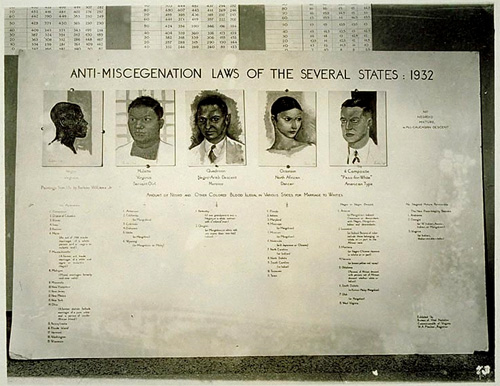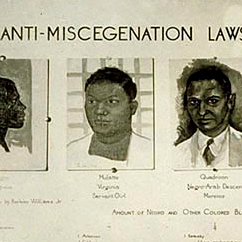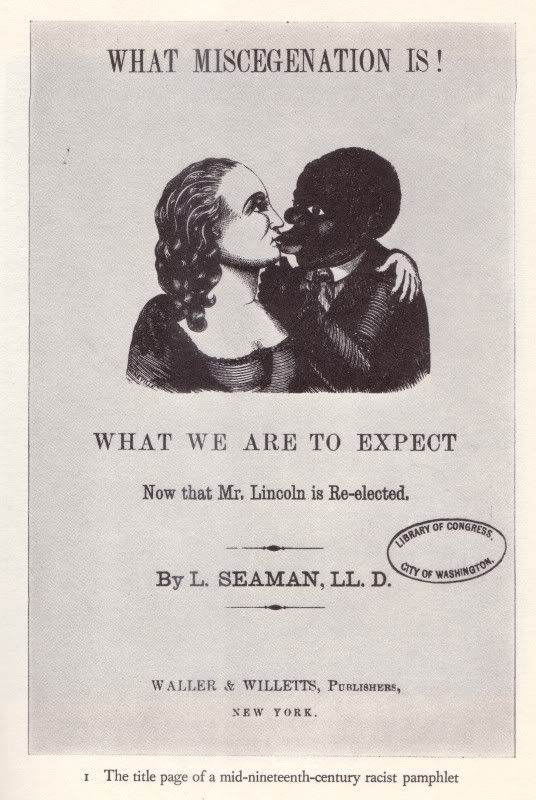Miscegenation
The intercultural marriage means the marriage between members of different nationalities, ethnicities or cultures. In contrast to inter-religious and inter-religious marriage the religious belief plays no primary role.
A negative assessment of intercultural marriage can be demonstrated at all times in most societies. In the days of colonialism were part of the colonial powers, the marriages of representatives of the " ruling class " problematized with distinguished as racially inferior locals, an example is the mixed marriage debate in the German Reichstag (1912). In many cases, " mixed race " marriages, a practice which in 1967 came to an end in 16 states of the United States by the Supreme Court ruling Loving v. Virginia were expressly forbidden by the state, for example by the "anti - miscegenation laws" in the United States. In a poll conducted a year later, 20 % for mixed-race marriages and 73 % were against (white: 17 % in favor, 75 % opposed, Black: 56 % in favor, 33 % against). Proponents have until 1991 to the majority.
A special historical role played by the pursuit of " mixed marriages " of non-Jews with Jews during the Third Reich.
Any laws or government rules that restrict the choice of spouse ethnic, national, cultural or religious, are in conflict with the human right to free choice of spouse (Article 16 of the Universal Declaration of Human Rights).










